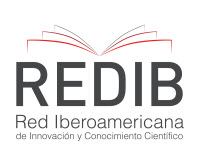A obra-prima impossível: uma leitura do tema da idealização e fracasso na arte
DOI:
https://doi.org/10.14393/artc-v20-n37-2018-47248Resumo
No discurso literário do século XIX, a idealização surge como um tema e um tópico metapoético capaz de ensejar importante reflexão sobre o sentido da criação artística, seus desafios e limites, bem como sobre as relações retóricas entre realidade e representação. Nesse contexto, diversas narrativas se ocupam do assunto, sendo uma das mais célebres A obra-prima ignorada (1831), de Honoré de Balzac, que toma a pintura como referencial para desenvolver uma representação emblemática do artista empenhado em uma busca obsessiva pela perfeição, estabelecendo certas perspectivas que se aproximam. Neste artigo, veremos, então, a partir da elaboração balzaquiana, como outros textos, a exemplo de A Madona do futuro (1873), de Henry James, e do relato “Paolo Uccello”, do livro Vidas imaginárias (1896), de Marcel Schwob, se inserem nessa dinâmica e que implicações conceituais e formais trazem à linguagem e ao imaginário.
palavras-chave: idealização; arte; narrativa.
Downloads
Downloads
Publicado
Edição
Seção
Licença
Autores que publicam nesta revista concordam com os seguintes termos da licença Creative Commons, adotada a partir da ArtCultura, v. 21, n. 39 (jul.-dez. 2019).
CC BY-NC-ND 4.0: o artigo pode ser copiado e redistribuído em qualquer suporte ou formato. Os créditos devem ser dados ao autor original e mudanças no texto devem ser indicadas. O artigo não pode ser usado para fins comerciais. Caso o artigo seja remixado, transformado ou algo novo for criado a partir dele, ele não pode ser distribuído.
Autores têm autorização para assumir contratos adicionais separadamente, para distribuição não exclusiva da versão do trabalho publicada nesta revista (ex.: publicar em repositório institucional ou como capítulo de livro), com reconhecimento de autoria e publicação inicial nesta revista.












